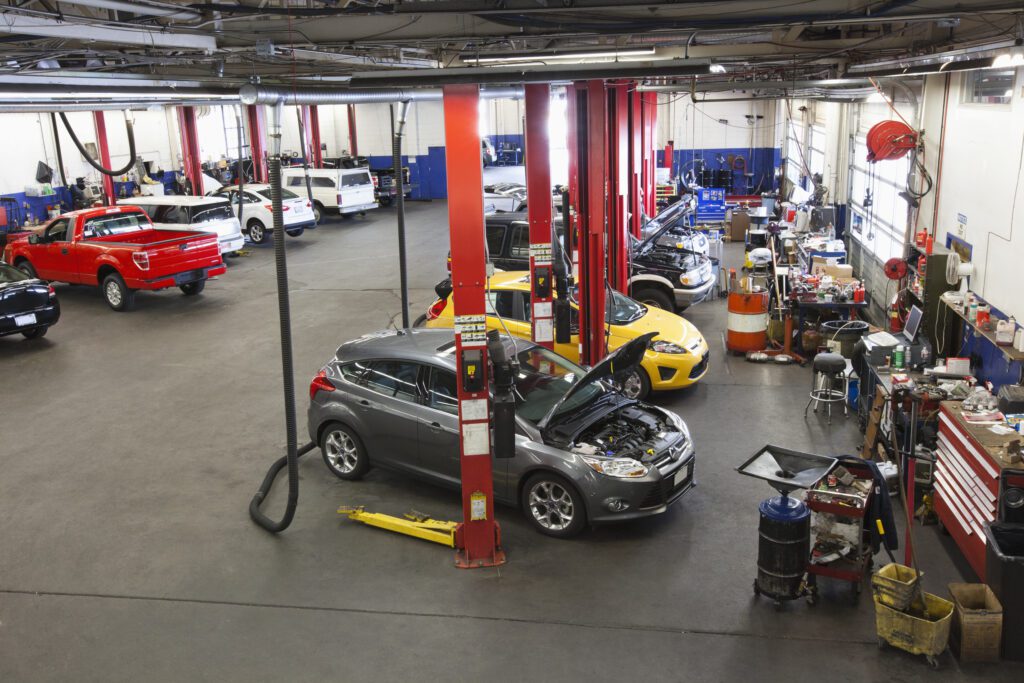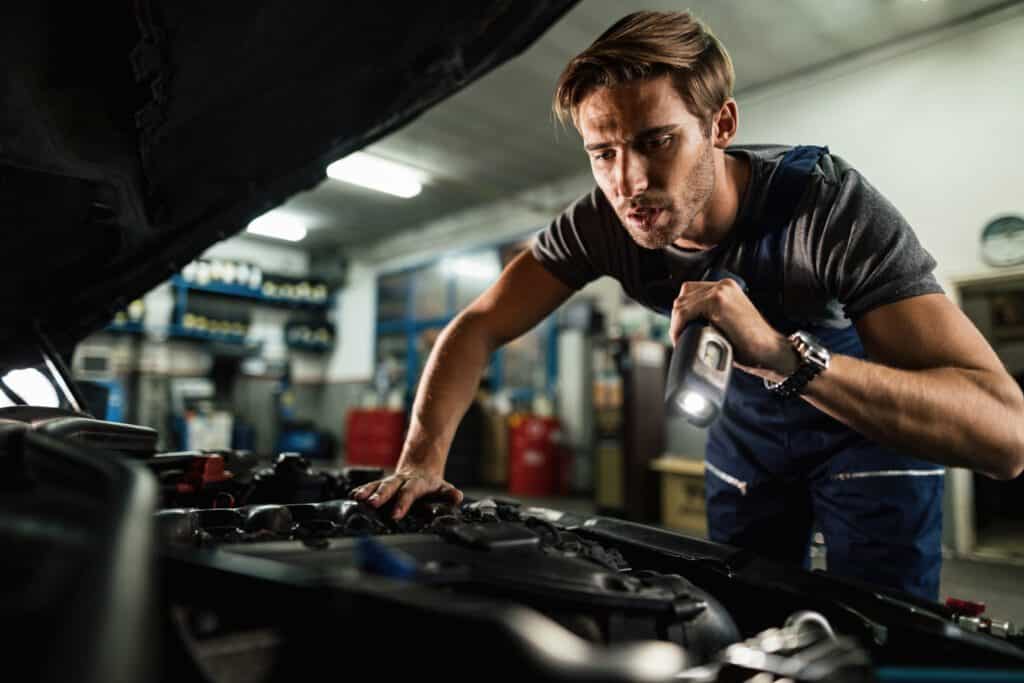
5 Best Things To Check Before Taking Your Car To The Shop
We all love our cars – they are not just a means of transportation, but also an extension of our personalities. However, no matter how well you take care of your vehicle, there will come a time when it needs professional attention. But before you schedule that appointment with the mechanic, there are a few things you should check to ensure that your car is in good shape and to avoid any unnecessary expenses at the repair shop. In this blog post, we’ve compiled the top 5 things to check before taking your car to the shop – so buckle up and read on!
Reasons for Taking Your Car to the Shop
Before taking your car to the shop for repair, it is important to first diagnose the problem. This can often be done by simply paying attention to how the car is behaving – does it make any strange noises? Is it difficult to start? Are the lights dimmer than usual? By understanding what is happening with your car, you can provide the mechanic with more specific information and save yourself time and money.
In addition, it is helpful to have an idea of what kind of repairs may be needed before going to the shop. If you know that your car needs a new battery, for example, you can ask the mechanic to focus on that issue and give you an estimate for the cost of the repair.
Finally, it is always a good idea to get multiple opinions before making any major decisions about repairing your car. Talk to friends or family members who may have recent experience with auto shops in your area, and read online reviews to get a sense of which businesses are reputable and fair. By doing your research ahead of time, you can choose a shop that you feel confident about and avoid any stressful surprises down the road.

5 Best Things To Check Before Taking Your Car To The Shop
What to Check Before Taking It In
Before taking your car to the shop for service, it is always a good idea to check a few things yourself. This can help you avoid paying for unnecessary repairs and save you time and money.
First, check your vehicle’s owner’s manual to see if there are any scheduled maintenance items that need to be taken care of. If so, make sure to have them done before taking your car in for service.
Next, check all of your fluid levels, including engine oil, coolant, power steering fluid, brake fluid, and transmission fluid. If any of these are low, top them off before taking your car in.
Finally, take a look at your tires. Check the tread depth and tire pressure to make sure they are within the manufacturer’s recommendations. If you notice any uneven wear or other issues with the tires, have them checked out by a professional before taking your car in for service.
1. Fluids
Before taking your car to the shop, it is important to check the level and condition of all fluids. Oil, coolant, brake fluid, and power steering fluid are all included. Checking your fluids regularly can help you avoid expensive repairs down the road.
If you are unsure how to check your fluids, consult your owner’s manual or ask a qualified mechanic. If you notice that any of your fluids are low, topping them off with the correct type of fluid can help keep your car running smoothly and efficiently. If you find that a particular fluid needs to be replaced, it’s best to have it done by a qualified mechanic.
2. Belts/Hoses
Monitoring your car’s belts and hoses is consistently a wise practice. Over time, they can become worn or cracked, which can lead to big problems down the road.
If you notice any cracks or fraying, it’s best to have them replaced as soon as possible. Additionally, it’s a good idea to check the tension of your belts periodically. If they seem loose, you may need to have them adjusted.
Finally, make sure to keep an eye on your hoses. If they become kinked or damaged, they could cause major issues with your car’s cooling system.
3. Tires/Wheels
Assuming you don’t have a spare tire or wheel to swap out, you’ll need to visit a tire or auto shop to get your vehicle repaired. But before you do, it’s important to check a few things first.
First, take a look at your tires. Check the tread and see if any of them are balding or close to balding. If so, you’ll need new tires.
Next, check the air pressure in all four tires. Use a tire pressure gauge (you can usually find these at gas stations) to get an accurate reading. If any of the tires are low on air, inflate them to the recommended pressure levels.
Finally, take a walk around your car and inspect the wheels for any dents, scratches, or cracks. If you see any damage, you may need to have the wheel repaired or replaced.
4. Lights and Signals
Before taking your car to the shop, it is important to check the lights and signals. It includes headlights, taillights, brake lights, turn signals, and hazard lights. Make sure that all of the bulbs are working and that the lenses are clean. Also, check the fuses and relays to ensure that they are working properly.
5. Battery/Electrical System
It’s always frustrating when your car won’t start. You turn the key, but nothing happens. Before you take your car to the shop, there are a few things you can check yourself.
First, check the battery. Check the battery with a voltmeter if the car won’t start or if the battery is dead. If the voltage measures below 12 volts, it indicates a dead battery that requires replacement.
If the battery is not the problem, then next check the starter. The starter is what turns over the engine and starts the car. If it fails to operate, then the car will not start. To check if the starter is working, first, make sure that there is power going to it. Then, try jumping it with a booster pack or another car. Substitute it if it continues to malfunction.
If neither of these is the problem, then it could be an issue with your fuel system. Make sure that there is gas in the tank and that the fuel pump is working. You can test this by turning on the ignition (without starting the engine) and listening to the sound of the fuel pump coming on for a few seconds. If you don’t hear anything or if you hear a clicking noise, then there may be an issue with your fuel pump and you will need to take it to a mechanic to have it checked out/replaced
Benefits of Regular Maintenance Check-Ups
It’s important to keep up with regular maintenance check-ups for your car. These check-ups can help identify potential problems early on before they become more serious and expensive to fix. Maintenance check-ups can also help improve your car’s performance and fuel efficiency.
When to Worry About Potential Problems
Before taking your car to the shop, it is important to check for potential problems that could cause your car to break down. Check out these things:
1. Fluid levels: Check the engine oil, coolant, and brake fluid levels. Having low levels of any of these fluids could indicate a leak.
2. Tires: Check the tread depth and pressure of all four tires. Uneven tread wears or low tire pressure could indicate a problem with the suspension or alignment.
3. Lights: Make sure all the lights are working properly, including the headlights, taillights, turn signals, and brake lights. A burned-out bulb could indicate a wiring problem.
4. Battery: Check the battery voltage using a multimeter. A low voltage could indicate that the battery is nearing the end of its life.
Taking care of your car and being proactive about its maintenance can save you a lot of time, money, and stress. The top 5 things to check before taking your vehicle to the shop should help you understand what needs to be done to maintain a smooth-running vehicle. Remember, it is always best to stay on top of preventive maintenance for your vehicle as this will help ensure that any problems are caught early and repaired quickly. With these tips in mind, you should have no problem keeping your car in great condition!
Select Bill’s Radiator & Muffler Hitch & Trailer
If you’re looking for an auto repair shop that can provide you with the best service possible, look no further than Bill’s Radiator & Muffler Hitch & Trailer. We offer a variety of services, including engine repair, transmission repair, brake repair, and more. We also offer a free estimate on any repairs that you may need.
Bills Radiator and Muffler offer services on both foreign and domestic cars. Our team has years of experience in the automobile industry and will be able to diagnose and repair almost any problem that you may be having with your vehicle.
So if you’re looking for an auto repair shop in Plano,TX that can provide you with the best service possible, make sure to give us a call today at (972) 422-1130.
